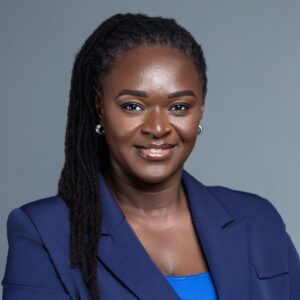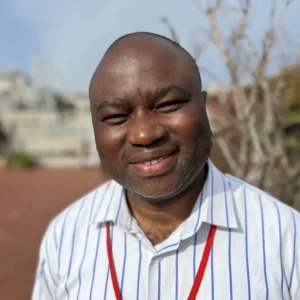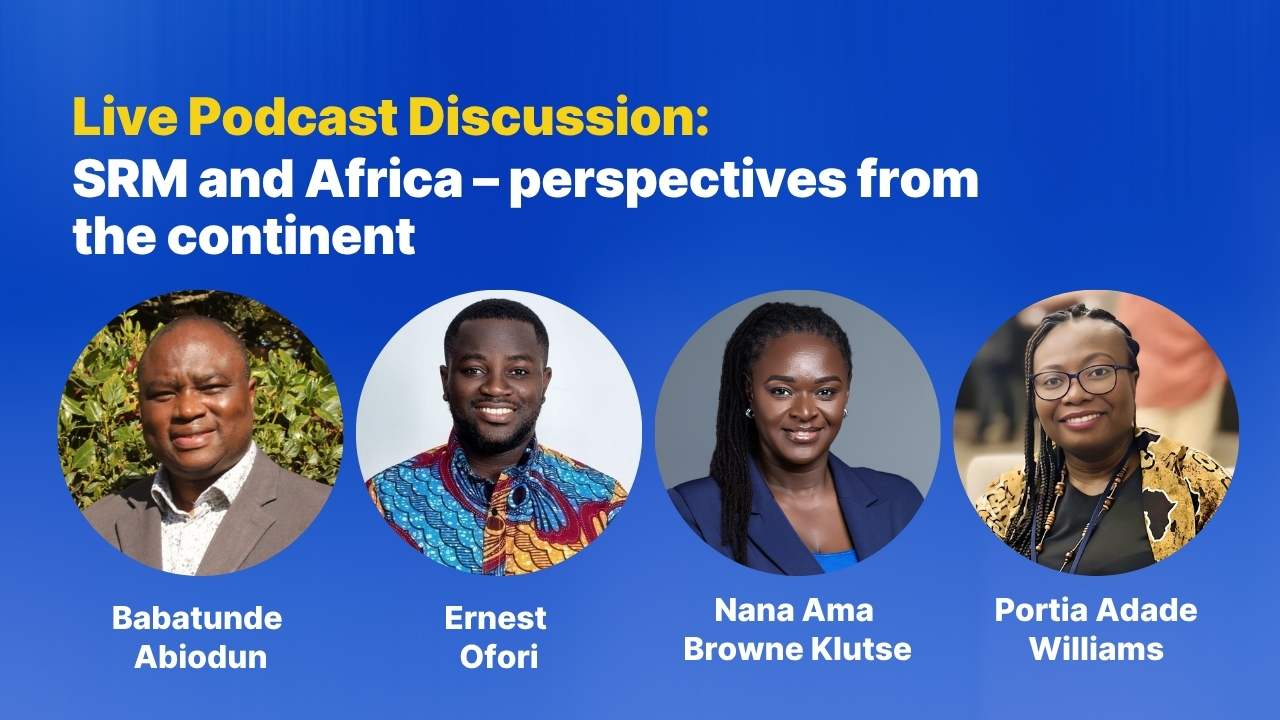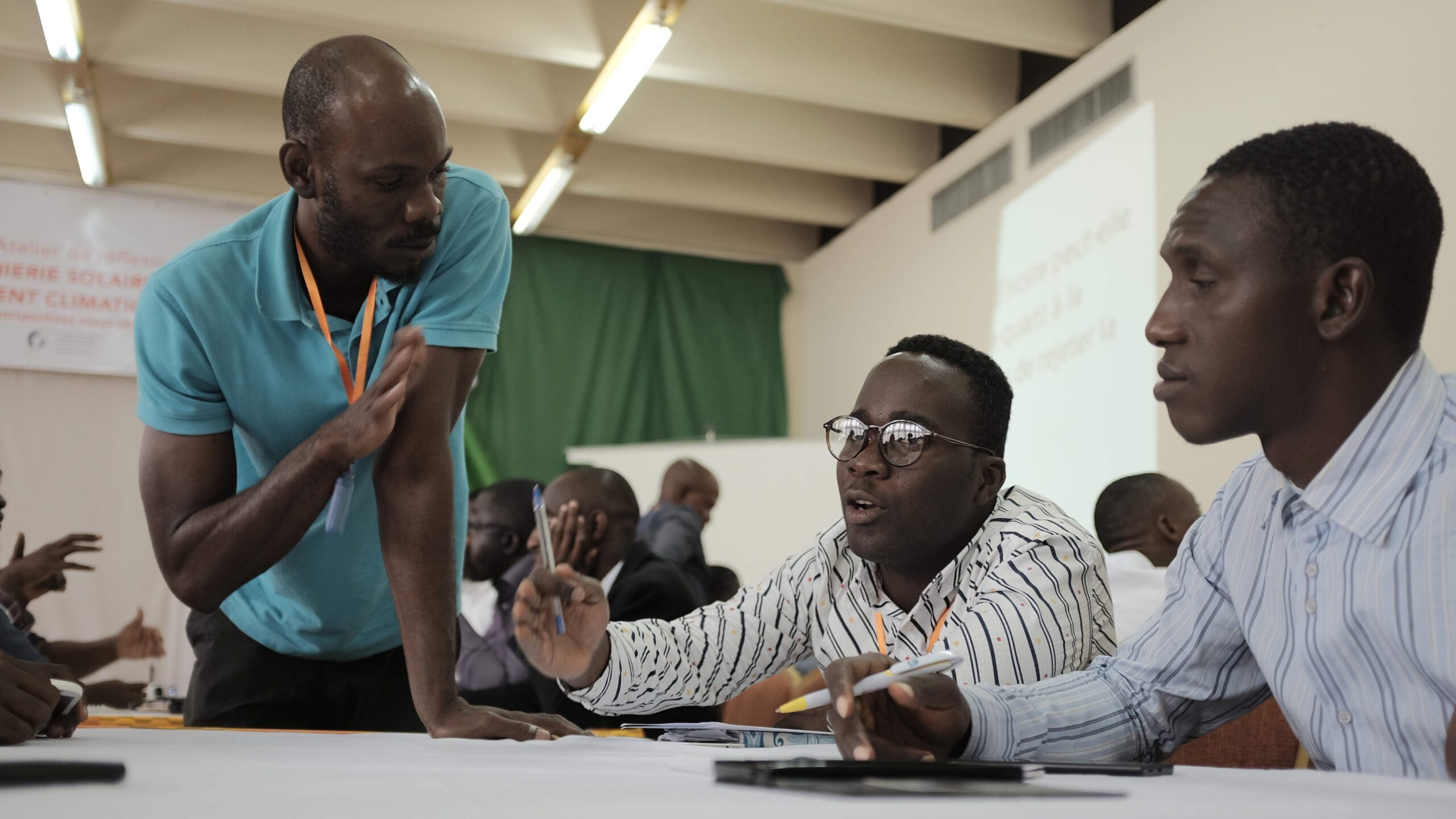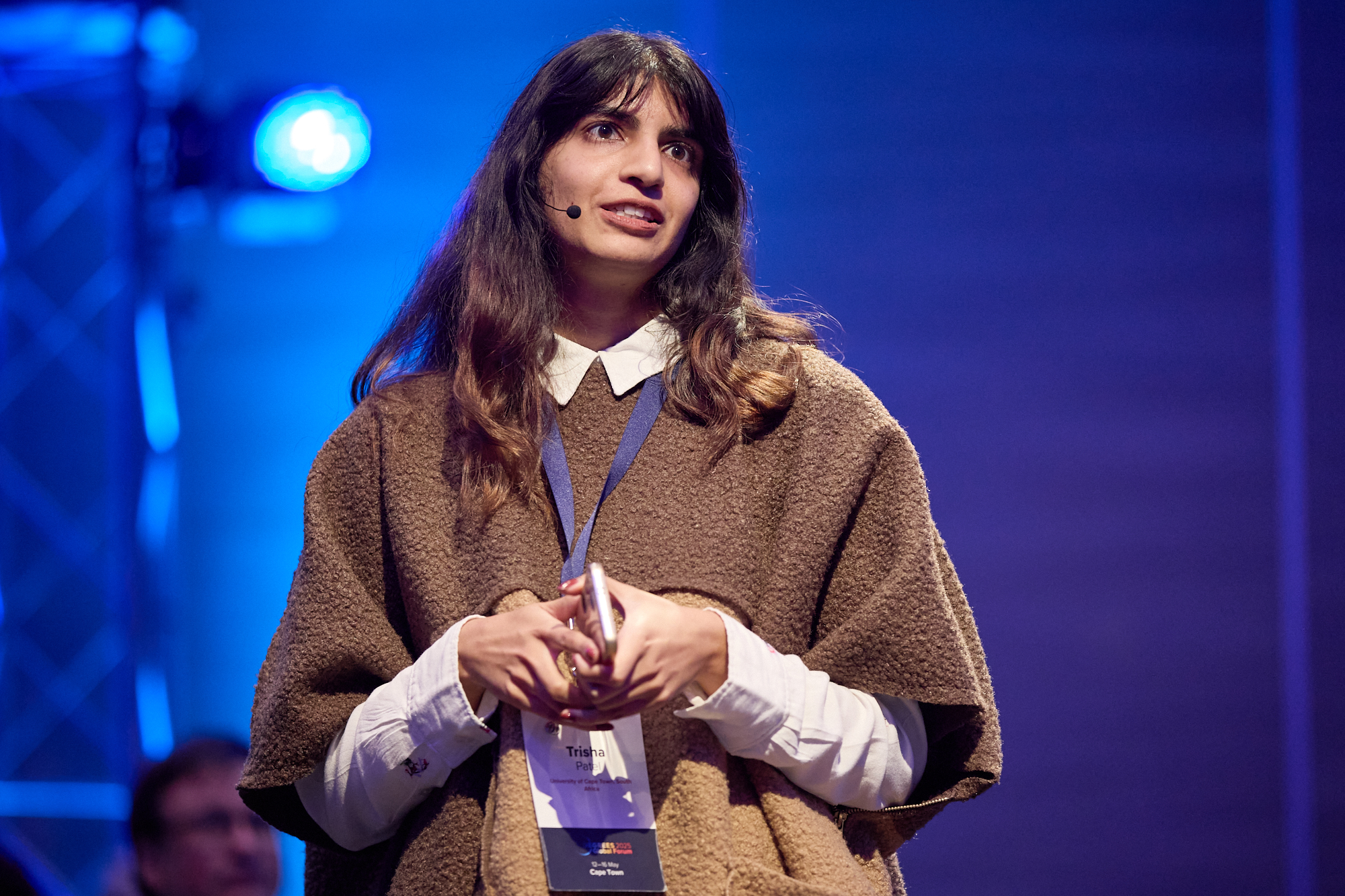Perspective
SRM Research in Africa Is Not Neo‑Colonial Experimentation
Nana Ama Browne Klutse and Babatunde Abiodun respond to commentary that frames sunlight reflection methods (SRM) research in Africa as neo-colonial experimentation. They argue this framing and calls to halt research diminish current African contributions to the field and hinder future participation.
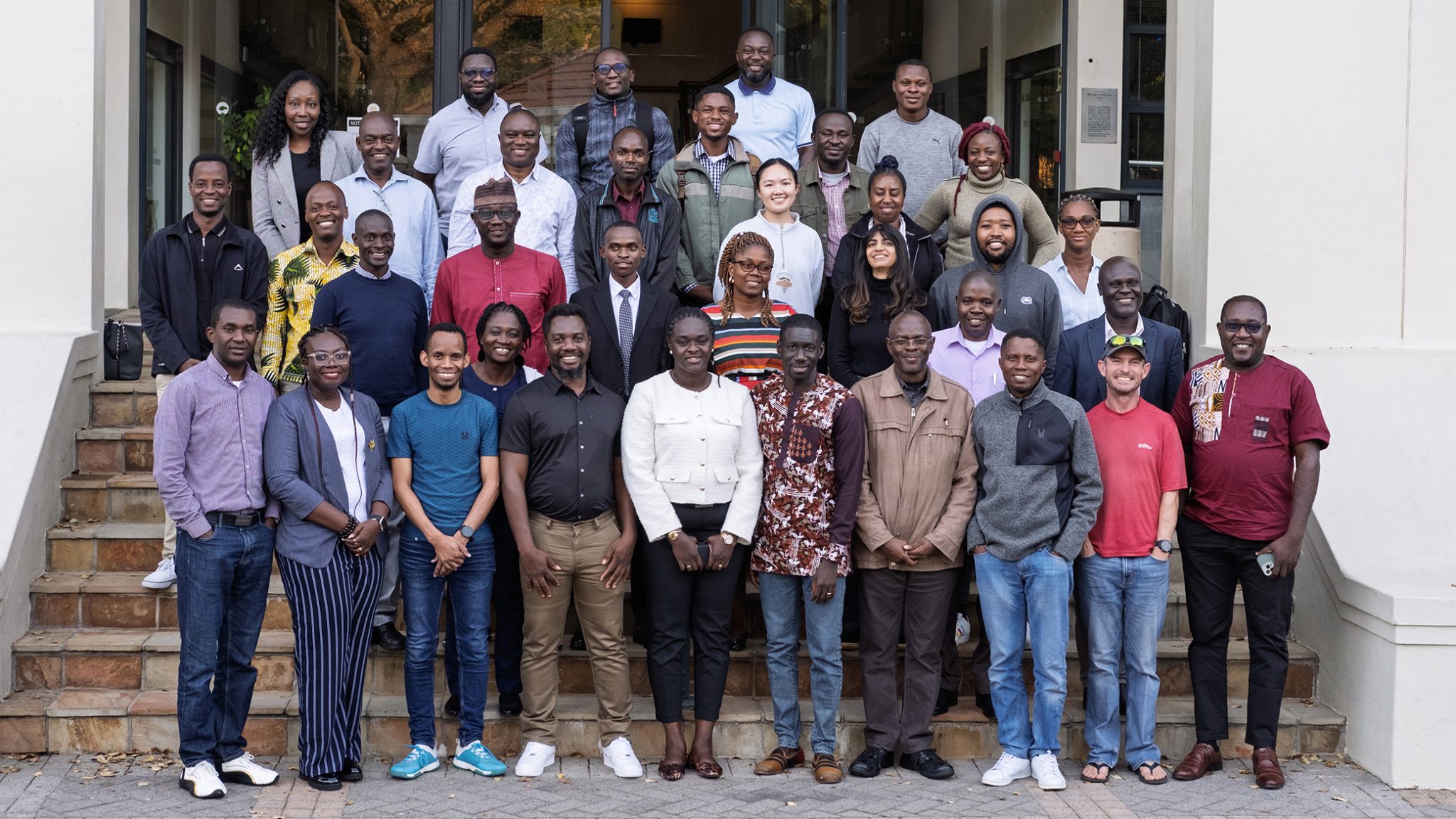
African SRM researchers meeting in Cape Town, South Africa on 8 May 2025 (photo: Africa Climate Intervention Research Hub).
African scientists are internationally recognised experts in the field of solar radiation management (SRM). We publish our research in top journals, serve on UN expert panels, and work together to ensure that our continent has an independent, informed, and confident voice in any discussions of this controversial technology.
It was disappointing to see our work erased and our intentions misrepresented in a press release issued by the Hands Off Mother Earth (HOME) Alliance, titled “Africa is Not A Laboratory”.
As scientists, we are dedicated to rigorous, transparent, and ethical research and are deeply concerned by the mischaracterisation of our SRM research as neo-colonial experimentation. Such a narrative not only spreads misinformation but also undermines African expertise and hinders African participation in an increasingly important field.
Understanding, not advocating
SRM is a controversial topic, and rightly so. If it were ever used, it would involve deliberately reflecting some sunlight away from the Earth to cool the planet and reduce the risks and impacts of climate change. It has the potential to be very helpful or very harmful, and there is not enough evidence to make informed decisions at this stage. This is why climate scientists across Africa intend to understand more about its potential impacts.
However, some critics of SRM research incorrectly conflate research with advocacy for deployment. We reject this. Our work investigates what SRM could mean for Africa, should it ever be deployed anywhere in the world. It is crucial to understand the potential risks, impacts, and uncertainties of such interventions, which would affect Africa regardless of local decisions.
The African SRM research community is growing, and it is critical that we, as African scientists, are not left out of global conversations and decision-making. Africa is extremely vulnerable to climate change and decisions on SRM would have serious impacts – positive or negative – across the continent.
Africa must not be left behind
Some opponents of SRM research have framed African involvement as neo-colonial. In truth, excluding African scientists from global research conversations would be far more colonial. Calls to halt research under the banner of “anti-colonialism” risk replicating colonial dynamics by denying African scientists the opportunity to participate, lead, and shape the knowledge systems that could one day affect our ecosystems, agriculture, public health, and more.
We assert our right to lead investigations into how climate interventions may affect our continent. It is essential that independent African experts work with African policymakers to produce region-specific knowledge about SRM and engage with global scientific communities on our terms.
This is not about promoting SRM. It is about ensuring that Africa is not blindfolded in global climate governance. The real risk is not research, but ignorance. We emphasise that responsible SRM research in Africa is:
- Led by African scientists;
- Conducted with transparency and public engagement;
- Focused on understanding the impacts of climate change and SRM;
- Essential for informing regional climate policy.
A call for dialogue, not dismissal
Research and international collaboration allow African experts to become global leaders on SRM. We urge civil society organisations, funders, and international partners to support open scientific inquiry, foster inclusive dialogue, and avoid politicising and polarising science in ways that limit our continent’s intellectual sovereignty.
Adapted from “Informed voices, informed futures: African scientists respond to misrepresentations of solar geoengineering research”, which was signed by the scientists listed in the endnotes:
The views expressed by Perspective writers and News Reaction contributors are their own and are not necessarily endorsed by SRM360. We aim to present ideas from diverse viewpoints in these pieces to further support informed discussion of SRM (solar geoengineering).
Endnotes
Scientists who signed “Informed voices, informed futures: African scientists respond to misrepresentations of solar geoengineering research”:
- Prof. Nana Ama Browne Klutse, Environmental Protection Authority, Ghana (lead author)
- Prof. Babatunde Abiodun, University of Cape Town, South Africa (lead author)
- Mr. Jean Pierre Nghonda, National Institute of Cartography, Cameroon
- Dr. Godwin Ayesiga, Ministry of Water & Environment, Uganda
- Dr. Alex Nimusiima, Makerere University, Uganda
- Dr. Francis Nkrumah, University of Cape Coast, Ghana
- Dr. Kwesi Quagraine, University of Cape Coast, Ghana
- Dr. Temitope S. Egbebiyi, University of Cape Town, South Africa
- Dr. Thierry C. Fotso-Nguemo, National Institute of Cartography, Cameroon
- Dr. Frederic Bonou, National University of Sciences, Technology, Engineering and Mathematics, Benin
- Dr. Naomi Kumi, University of Energy and Natural Resources, Ghana
- Mr. Samuel Lawine, University of Energy and Natural Resources, Ghana
- Dr. Romaric Odoulami, University of Cape Town, South Africa
- Dr. Rodrigue Idohou, National University of Agriculture, Benin
- Dr. Amadou Coulibaly, Rural Polytechnic Institute for Training and Applied Research, Mali
- Dr. Abdoulaye Ballo, Rural Polytechnic Institute for Training and Applied Research, Mali
- Prof. Vincent Olanrewaju Ajayi, Federal University of Technology, Akure, Nigeria
- Dr. M.Gloriose Bignon Allakonon, University of Parakou, Republic of Benin
- Ms. Minette Iris Moting Madefo, University of Cape Town, South Africa
- Mr. Tiro Nkemelang, University of Cape Town, South Africa; Botswana Institute for Technology Research and Innovation, Botswana
- Dr. Christopher Lennard, University of Cape Town, South Africa
- Prof. Franklin Joseph Opijah, University of Nairobi, Kenya
- Dr. Gabriel Fotso-Kamga, University of Yaoundé, Cameroon
- Dr. Kouakou Kouadio, University of Félix Houphouet-Boigny, Côte d’Ivoire
- Dr. Yepdo Djomou Zéphirin, National Institute of Carthography, Cameroon
- Dr. Portia Adade Williams, CSIR – Science and Technology Policy Research Institute, Ghana
- Dr. Yves Wilfried Pomalegni, University of Abomey and Benin Fisheries and Oceanological Research Institute, Benin
- Dr. Alima Dajuma, University Peleforo Gon Coulibaly, Côte d’Ivoire
- Dr. Peter Rock Ebo Odoom, University of Cape Town, South Africa
- Dr. Joyce Kimutai, Kenya Meteorological Department & Imperial College London
